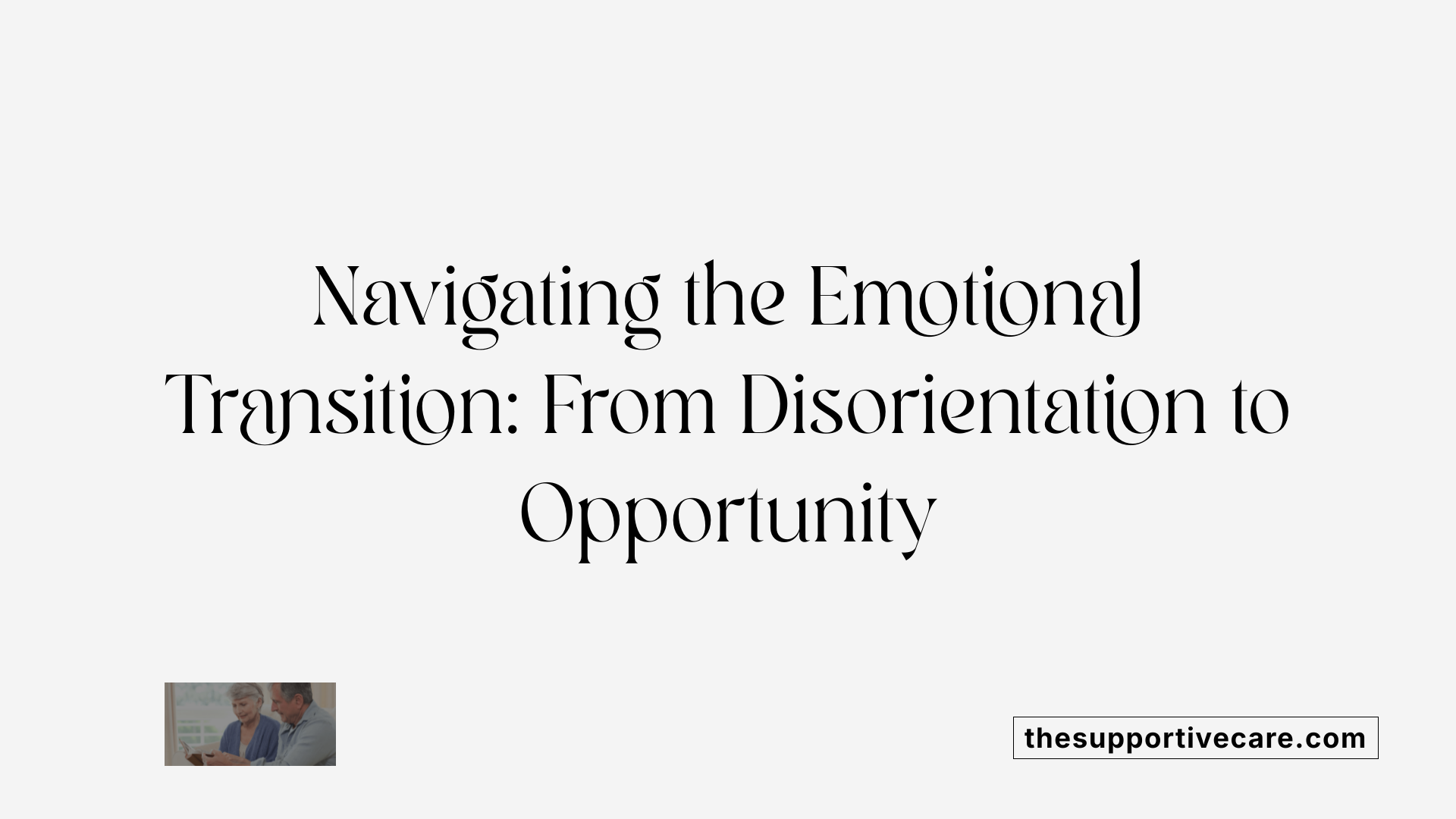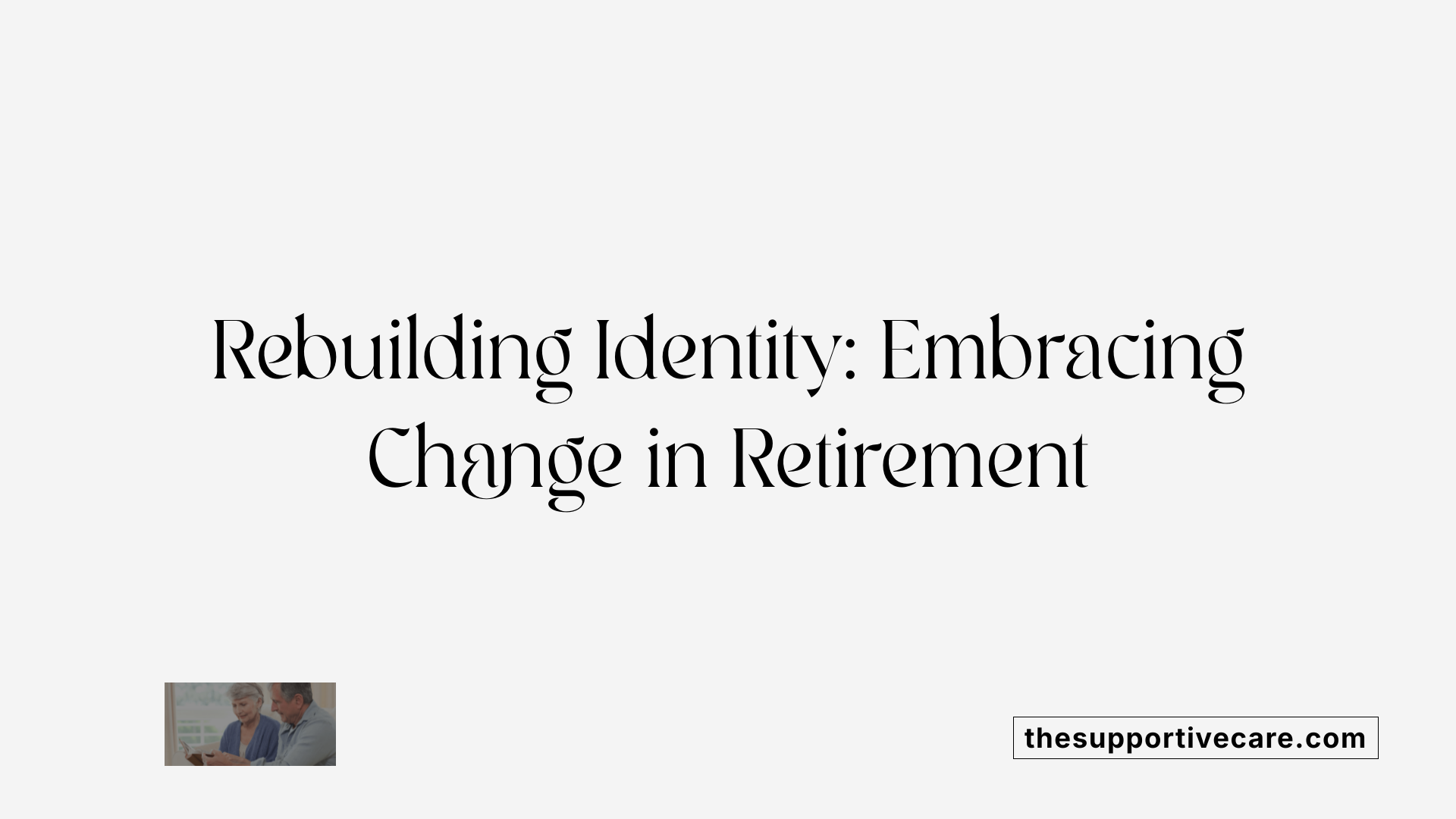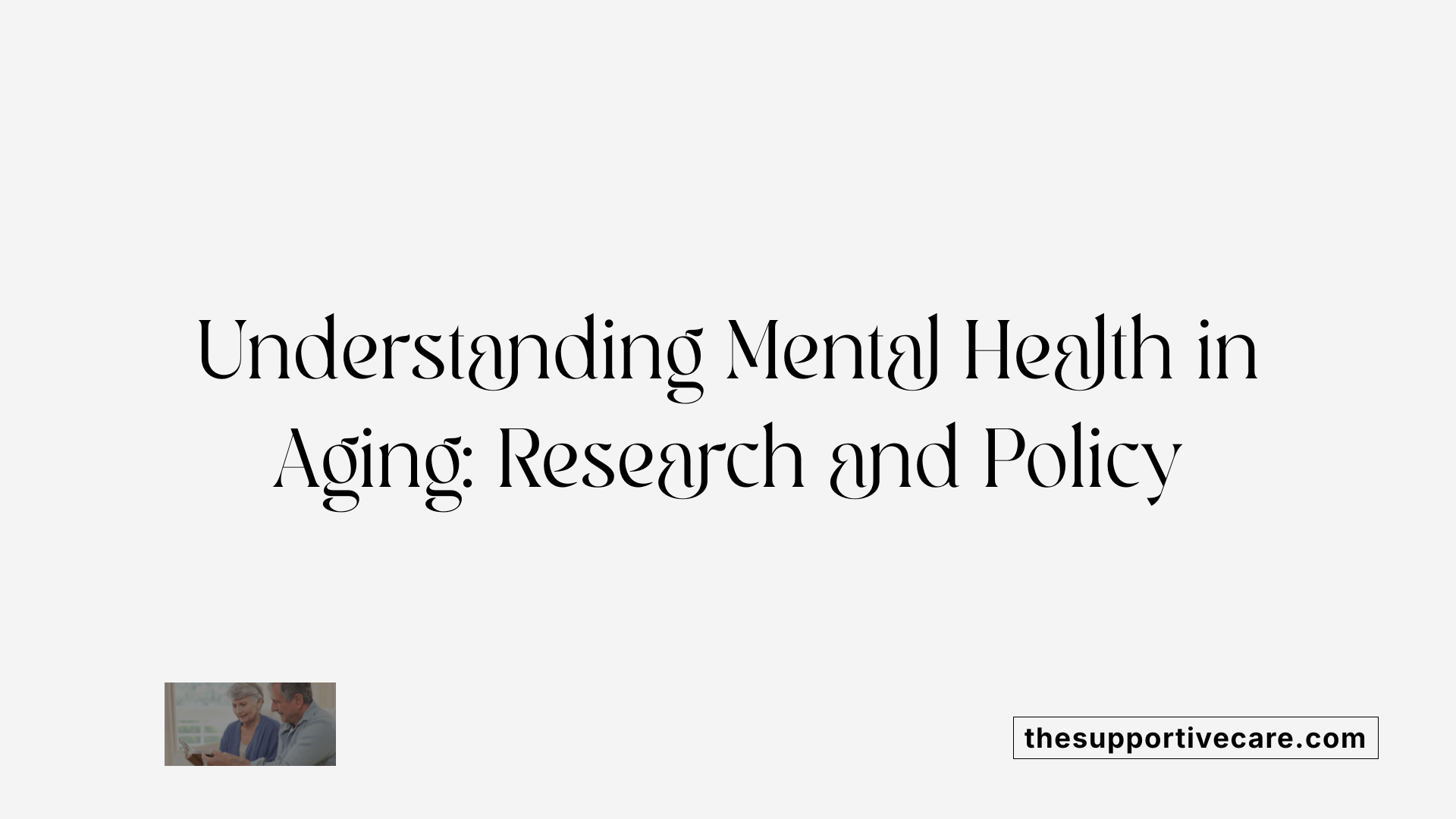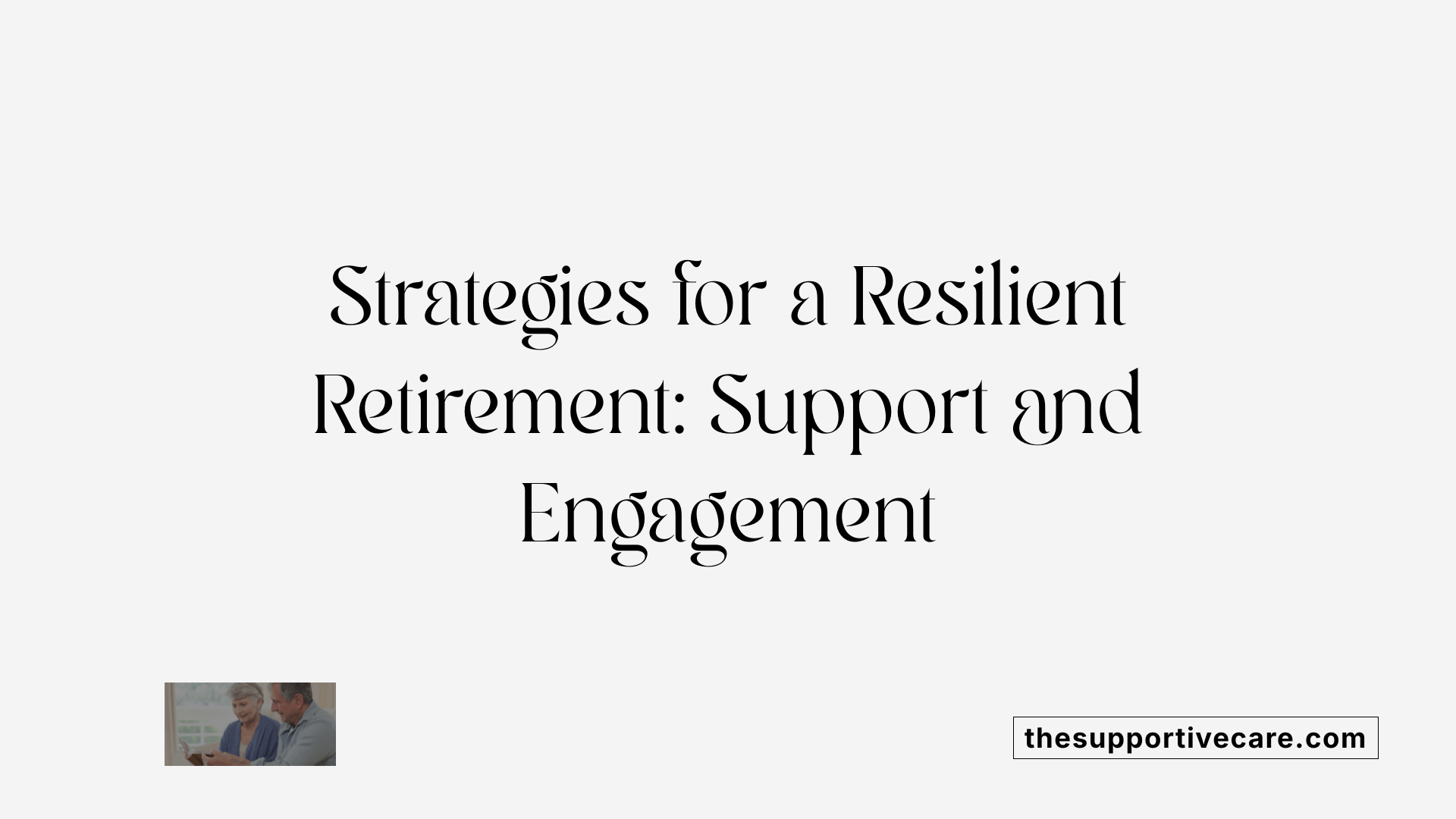Understanding the Emotional and Mental Challenges of Retirement in Seniors
Retirement marks a significant transition in a person’s life, often accompanied by profound psychological, emotional, and social changes. While it offers opportunities for new activities and personal growth, it also presents notable challenges such as identity loss, social isolation, and mental health issues. This article explores the complex effects of retirement on seniors, emphasizing both risks and strategies for fostering mental well-being during this life stage.
The Psychological Impact of Retirement: From Disorientation to Opportunity

What emotional challenges are faced by seniors during retirement?
Retirement marks a significant life change that often brings a mix of emotional experiences. Many seniors encounter feelings of loss, particularly of their identity and purpose, which were closely tied to their careers. This shift can lead to depression, anxiety, and grief as individuals adjust to a new phase of life.
Social isolation and loneliness are common, especially if retirees don't actively seek new social connections. A decrease in daily contact with colleagues and friends can heighten feelings of disconnection, which negatively impacts mental health.
Initially, some retirees may experience a honeymoon phase filled with excitement and leisure. However, this period often gives way to disenchantment when the reality of less structure and routine sets in. Feelings of boredom, dissatisfaction, and disillusionment can develop, exacerbating mental health issues.
Financial stress, health challenges, and the adjustment to new social roles further strain emotional well-being. Many older adults worry about their financial security, health decline, and social acceptance.
To counteract these psychological challenges, retirees are encouraged to engage in social activities, volunteer work, and hobbies that foster a renewed sense of purpose. Building new routines, maintaining social networks, and seeking psychological support if necessary can significantly enhance emotional resilience, helping retirees navigate this transition.
Phases of psychological adjustment
The process of adapting to retirement typically occurs in distinct stages. Initially, some experience a period of euphoria and increased leisure, but as reality sinks in, feelings of loss and aimlessness often arise.
Subsequently, individuals enter a phase of re-evaluation, where they explore new passions, hobbies, or part-time work to find meaningful engagement.
Achieving psychological well-being involves embracing change, creating new routines, and developing multiple social roles. Support from community programs, counseling, and social groups can ease this transition.
Understanding these phases helps retirees and their families better prepare for the emotional landscape of retirement, fostering resilience and ensuring a healthier, more satisfying later life.
| Aspect | Description | Additional Notes |
|---|---|---|
| Emotional Challenges | Loss of identity, grief, anxiety, and depression | Addressed through social activities and counseling |
| Loss of Routine | Decreased daily structure leading to boredom and disenchantment | Creating new routines and engaging in hobbies |
| Social Isolation | Reduced social contacts, leading to loneliness | Volunteering and community involvement |
| Phases of Adjustment | Honeymoon, disenchantment, re-evaluation, adaptation | Support groups and mental health services help transition |
| Strategies for Well-being | Social engagement, purposeful activities, psychological support | Critical in promoting mental health in retirement |
Identity Loss and Reassessment: The Core of Retirement Challenges

How does retirement change social and emotional identity among seniors?
Retirement brings a profound transformation in seniors' social and emotional identities. For many, work has been a central source of self-definition, purpose, and social interaction. When retirement occurs, they are often faced with a reassessment of who they are without their previous employment roles. This shift can induce feelings of loss, disorientation, and loneliness, as individuals grapple with the absence of routines and social networks tied to their jobs.
However, these changes also open opportunities for rediscovering passions and developing new roles. Many retirees engage in hobbies, volunteering, or family activities that foster a renewed sense of purpose and belonging. This process of re-evaluation involves emotional adjustments—sometimes marked by grief or identity crises—but it can ultimately lead to personal growth.
In the transition phase, actively seeking social interactions and health-promoting routines becomes vital. Engaging in community activities, maintaining social networks, and exploring new interests help mitigate negative feelings and reinforce a positive self-concept. Overall, the way seniors adapt to the identity shifts associated with retirement influences their psychological resilience and life satisfaction.
By consciously re-defining their roles and staying active socially, retirees can foster a resilient sense of self, transitioning from loss to renewal. Such proactive strategies not only ease the emotional upheaval but also enhance their overall well-being as they navigate this new chapter in life.
Understanding this process highlights the importance of supporting seniors through programs and counseling aimed at identity reassessment, helping them find new sources of purpose and connection after retirement.
More Information
Searching for "retirement and identity crisis in seniors" provides insights into common psychological struggles and strategies to manage life transition challenges effectively.
Social Isolation and Its Deep Impact on Mental Health

How does social isolation affect the mental health of retired seniors?
Social isolation plays a significant role in negatively affecting the mental health of retired seniors. When older adults experience loneliness and feel disconnected from their social networks, they are more likely to develop feelings of depression and anxiety. The absence of regular social interactions can lead to a profound sense of loneliness, which is closely linked to mental health issues.
Research shows that social isolation not only increases the risk of mood disorders but also contributes to cognitive decline. Seniors who are socially isolated are at a higher risk of developing dementia, including Alzheimer’s disease. The biological consequences of social isolation, such as chronic stress and inflammation, further worsen mental health and can lead to physical health complications.
Several factors can cause increased social separation among older adults. These include the loss of loved ones, mobility issues, health problems, and retirement from work environments that provided social engagement. Without proactive measures, these challenges can result in heightened feelings of social loneliness.
Addressing social isolation in seniors involves multiple strategies. Community programs, such as senior centers and social clubs, provide opportunities for interaction. Healthcare providers can screen for signs of loneliness and recommend social activities as part of routine care. Encouraging participation in volunteering, hobbies, and lifelong learning can foster meaningful connections.
Overall, reducing social isolation is vital for promoting mental health and well-being among retired seniors. Creating supportive environments and opportunities for engagement can help mitigate the risks associated with loneliness and improve quality of life.
Research Insights and Policy Directions in Aging, Retirement, and Mental Well-Being

What research has been conducted on aging, retirement, and mental health outcomes?
Research studies on aging and retirement reveal that mental health impacts are complex, with both positive and negative influences during this life phase. Findings suggest that retirement can reduce depression, especially when individuals leave work voluntarily and with positive expectations. Engaging in social activities, volunteering, and hobbies serve as effective ways to boost mental well-being and reduce feelings of social isolation and boredom.
Long-term research indicates that mental and physical health often improve during the initial years post-retirement. However, these benefits can fade as time goes on, highlighting the importance of sustained activity and social connection. The role of socioeconomic status significantly shapes the retirement experience. Higher SES retirees tend to enjoy better health and more active lifestyles, whereas lower SES groups face greater risks of health decline and increased depression.
These findings point to the need for comprehensive approaches in policy and community support, aiming at vulnerable populations. Promoting social participation, maintaining physical activity, and providing mental health services are vital strategies. Future research should utilize longitudinal and cross-national studies to overcome current methodological challenges, ensuring policies are based on robust evidence and effectively address the diverse needs of aging populations.
| Aspect | Findings | Additional Details |
|---|---|---|
| Effect of retirement | Often reduces depression, especially if voluntary | Benefits more pronounced early, diminish over time |
| Impact of SES | Better outcomes in higher SES groups | Lower SES more vulnerable to health declines and social isolation |
| Research needs | More longitudinal, cross-national studies | Address biases such as reverse causality and healthy worker effect |
| Policy focus | Support social, physical, and mental health | Target at-risk groups, promote community engagement, and lifelong learning |
Supporting Mental Well-Being: Strategies for Retirees

What strategies can support seniors facing psychological and emotional challenges in retirement?
Retirement marks a significant life transition, often accompanied by psychological and emotional hurdles such as depression, anxiety, and social isolation. To support mental health during this period, a comprehensive approach involving various strategies proves most effective.
First and foremost, promoting community involvement and volunteering can significantly reduce feelings of loneliness and boost purpose. Engaging in activities like volunteer work, hobbies, or community groups fosters new social connections and provides mental stimulation. Encouraging participation in intergenerational programs helps retirees build meaningful relationships across age groups, which enhances their sense of belonging.
Seeking mental health support is equally important. Access to services like counseling, support groups, and community-based care enables early identification and treatment of mental health issues. Psychosocial interventions tailored to older adults can address feelings of loss, grief, and identity crisis common in retirement.
Maintaining a healthy lifestyle plays a crucial role in supporting emotional well-being. Regular physical activity, such as walking, yoga, or swimming, improves mood and cognitive function. A balanced diet, adequate sleep, and limiting excessive alcohol consumption contribute to overall health and resilience. Additionally, reducing exposure to negative media and stressors can help sustain a positive outlook.
Addressing societal factors like ageism and safeguarding retirees from abuse are vital components. Educational campaigns and policy initiatives can promote respect and protect older adults from exploitation, which directly impacts mental health.
Implementing holistic, multidisciplinary care models ensures that retirees receive coordinated support targeting physical, psychological, and social needs. Evidence-based psychosocial programs, including cognitive-behavioral therapy and mindfulness practices, can further enhance coping skills and emotional stability.
In summary, a multifaceted strategy comprising community engagement, mental health support, healthy aging behaviors, and societal safeguards forms a robust foundation for maintaining mental well-being among retirees. Such approaches help retirees thrive in their new life stage, fostering satisfaction, purpose, and resilience.
Promoting Psychological Resilience in the Golden Years
Understanding the psychological effects of retirement and the influence of identity loss is crucial for developing effective support systems tailored to seniors’ unique needs. Emphasizing social engagement, mental health care, purposeful activities, and community involvement can mitigate the risk of depression, anxiety, and social isolation. As research continues to evolve and policy initiatives adapt, fostering resilience and well-being in older adults remains a vital goal. By proactively addressing emotional challenges, society can help retirees navigate this life transition with a sense of purpose, connection, and emotional stability, ensuring that retirement becomes a period of fulfillment and personal growth.
References
- The Psychological Effects of Retirement on the Elderly
- The Retirement Process: A Psychological and Emotional ...
- The Effects of Retirement on Sense of Purpose in Life
- The Psychological Challenges of Retirement
- Sudden Retirement Syndrome: Recognizing and Coping
- Adjusting to Retirement: Handling Depression and Stress
- The Impact of Life Transitions on Mental Health in Older ...
- Impact of retirement transition on health, well-being and ...
- “Psychology Works” Fact Sheet: Retirement


































































































